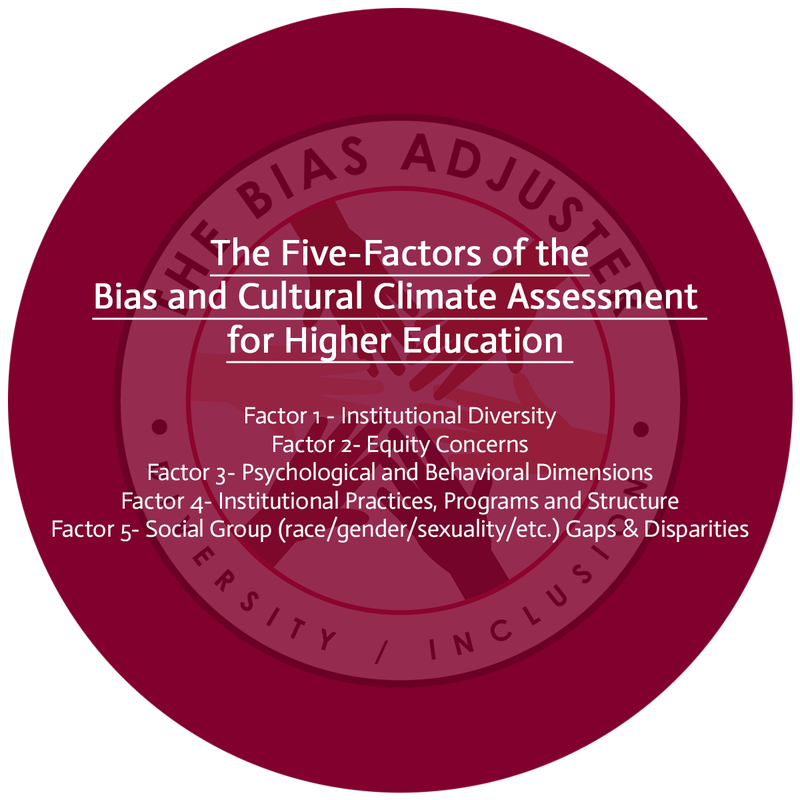Cultural bias refers to the inclination to interpret and judge phenomena through the lens of one’s own cultural context. It permeates various aspects of human interaction, including perceptions of behavior, communication styles, and frameworks of understanding. Now, consider this playful question: how might our own cultural biases inadvertently shape our perceptions of environmental issues? This inquiry introduces a challenge that transcends individual awareness—one that necessitates a thorough examination of our collective consciousness in the face of climate change.
At its core, cultural bias can be defined as the propensity to favor one’s cultural norms over others, leading to a skewed interpretation of reality. This phenomenon is intricately tied to social constructs that enforce what is deemed “normal” or “acceptable.” For instance, in many Western cultures, individualism and personal freedom are highly valued, often overshadowing communal values which might prioritize collective well-being. When addressing environmental issues, such inherent biases can influence policies, advocacy efforts, and even daily practices that contribute to ecological degradation or restoration.
One significant effect of cultural bias manifests in the discrepancy between how different societies perceive climate change. In nations predominantly influenced by Western ideologies, climate change is often framed as a futuristic threat requiring technological innovation or legislative action. Conversely, in many Indigenous communities worldwide, climate change is understood as a manifestation of long-standing environmental upheaval, steeped in a narrative of disruption to ancestral lands and the web of life. This variation in perspective can create disconnects in how global responses are crafted. Are we really listening to the voices of those who have lived harmoniously with the earth for generations?
The ramifications of cultural bias in environmental discussions extend to the language utilized. Terms like “sustainability” may connote varying meanings across different cultures. While some may view sustainability primarily through an economic lens, others may integrate spiritual, social, and environmental components into their understanding. Thus, language becomes a crucial battleground where cultural biases manifest, often leading to miscommunication and a lack of unified efforts toward climate action.
This divergence begs the question: how can we reconcile these diverse perceptions of climate change to foster a more inclusive dialogue? Acknowledging cultural biases requires humility and a willingness to unlearn preconceived notions. It may entail engaging with diverse voices and championing multicultural perspectives in environmental policy creation. This extensive dialogue should embrace different cultural narratives, thus enriching the discourse and potentially leading to more holistic solutions.
Moreover, a deeper understanding of cultural bias can illuminate the systemic barriers impeding equitable climate action. Policy frameworks often reflect biases favoring affluent nations, sidelining developing countries that contribute less to greenhouse gas emissions yet bear the brunt of climate impacts. This imbalance is not just a matter of fairness; it hints at the urgent need for a paradigm shift in how we approach global warming. How often do we consider the legacies of colonization, capitalism, and socioeconomic disparities in the context of climate action?
The interplay between cultural bias and environmental stewardship also presents challenges in grassroots movements. Initiatives aimed at combating climate change may inadvertently reflect the biases of their predominantly represented groups. For example, a community-driven clean-up initiative might prioritize spaces recognizable to its organizers—potentially overlooking marginalized neighborhoods that also require attention and resources. Elevating local voices is critical; ensuring that initiatives are reflective of and responsive to the diverse demands of communities is essential for meaningful engagement and success.
Transitioning to a more equitable approach necessitates a comprehensive analysis of educational frameworks as well. Oftentimes, narratives surrounding climate change education neglect the cultural dimensions, focusing primarily on scientific data and technological solutions. However, integrating cultural perspectives can enhance relatability and empower individuals, fostering a generational reverence for environmental stewardship. By embedding education that respects various cultural narratives surrounding the environment, we instill a sense of belonging and collective responsibility toward ecological preservation.
In examining solutions, the concept of cultural humility emerges as a practical approach. This involves actively seeking to understand and respect the cultural contexts of others, and recognizing the limitations of one’s own perspective. Cultural humility promotes openness to different ways of life and environmental interactions. By fostering this mindset, we enable the co-creation of sustainable solutions that resonate across cultural landscapes.
Furthermore, the arts and creative expressions can serve as powerful conduits for bridging cultural divides in environmental dialogues. Art has an intrinsic ability to transcend language barriers and evoke emotional connections. Visual storytelling, music, and theater can communicate the urgency of our climate crisis in ways that resonate across diverse audiences, fostering empathy and understanding. In what ways can collaboration among artists from different cultural backgrounds prompt new narratives around climate action?
Ultimately, grappling with cultural bias is not merely an academic endeavor; it is a moral imperative, especially in the context of climate change. The environmental crisis we face is not solely a scientific or technological challenge. It is an intricate social issue, deeply intertwined with cultural identities, histories, and values. To navigate this complexity effectively, we must confront our biases, embrace an inclusive dialogue, and endeavor to create a sustainable future that honors all perspectives, particularly those historically marginalized.
As we move forward, let us challenge ourselves to remain vigilant and reflective, ensuring our cultural biases do not obscure our vision for a more equitable and sustainable world. The questions we ask, the narratives we elevate, and the frameworks we establish will collectively shape our trajectory in climate advocacy and beyond. The journey begins with recognizing the significance of cultural bias and its implications as we strive for environmental justice.
